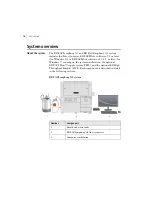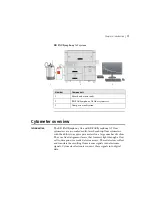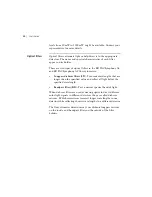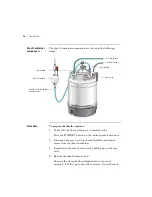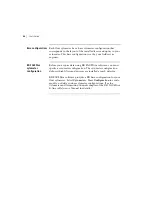
Chapter 2: Introduction
29
Optics
Introduction
This topic describes the optical components for the
BD FACSymphony A3 and BD FACSymphony A5 flow cytometers
including:
•
Detector arrays
•
Laser options
•
Optical filters
•
Signal detectors
Detector arrays
The detector arrays consist of decagons or cascade arrays. Each
decagon can be outfitted with two to 10 photomultiplier tubes
(PMTs) and can detect the corresponding number of signals. Each
cascade array can be outfitted with two to 20 PMTs and can detect
the corresponding number of signals.
Laser options
The flow cytometers can be configured with up to five lasers on the
BD FACSymphony A3 or 10 lasers on the BD FACSymphony A5.
The laser wavelengths and powers for your instruments can be
found on the labels of the laser modules or in the BD FACSDiva
software under Configurations. The following table lists some of
the common lasers.
Other optional lasers include 375 nm, 420 nm, 445 nm, 458 nm,
460 nm, 473 nm, 505 nm, 514 nm, 532 nm, 552 nm, 568 nm,
588 nm, 592 nm, 628 nm, 640 nm, 647 nm, 660 nm, 685 nm,
730 nm, 785 nm, and 980 nm. Depending on the laser, power
Laser
Wavelength (nm)
Power (mW)
Violet
405 100
Blue
488 100
UV
355 100
Yellow Green
561
100
Red
637
140
Summary of Contents for FACSymphony A3
Page 4: ......
Page 8: ...User s Guide 8...
Page 14: ...This page intentionally left blank...
Page 46: ...This page intentionally left blank...
Page 86: ...This page intentionally left blank...
Page 97: ...Chapter 6 Recording and analyzing data 97 e Click OK 12 Print the analysis...
Page 98: ...User s Guide 98 Your global worksheet analysis objects should look like the following...


